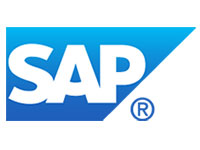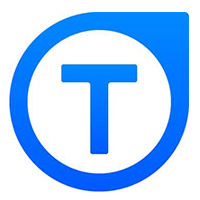
Peak oil: When planet Earth reaches the maximum rate of global petroleum extraction, after which the rate of production enters terminal decline. Some say it has already happened, some believe it will within the next 50 years, and some deny the possibility all together.
By any measure, though, it is a scary concept around which consultants, scientists and survival groups have coalesced.
The tech industry is no exception; in general, there are any number of examples of tech companies providingenergy-efficient products tocustomers.
Interestingly, there have been few attempts to size the impact the energy crisis, in general — and peak oil, specifically — will have both on the tech industry, which is recalibrating its products to answer demand, and on the companies that are investing in these products.
The latter can be particularly difficult to estimate, Beagle Research Group Principal Denis Pombriant told CRM Buyer. “As liquid fuel becomes more expensive, you have to constantly recalibrate the numbers around the potential savings and potential opportunities.”
Offsetting the Costs
Pombriant, however, has given the concept some thought as it applies to his particular niche in the tech industry — customer relationship management. In a white paper introduced on Wednesday, “Peak Oil & Sustainability: CRM’s Potential Impact,” he looks at how CRM technologies can be leveraged to offset some of the worst effects of energy costs.
“We are already seeing companies make rather significant investments in the expectation that it will reduce energy costs down the road,” Pombriant observed.
Sooner rather than later, he believes, that push will evolve into a broader look at entire operational processes and the way business is conducted overall.
Setting up a video conference instead of driving — or, worse, flying — to meet with a customer is a typical example. It is easy to extrapolate how Web 2.0 and CRM technologies can be used to save energy costs.
“Anything that is able to take energy use out of front office business processes while not sacrificing customer intimacy will be key,” Pombriant said. “Computers with built-in cameras and microphones will be essential; so will companies that specialize in better bandwidth connections as more firms ship more data over the Internet. There will be opportunities for companies that can help convert two-dimensional content — paper, essentially — into short documentaries like videos that can be passed around within an organization.”
Exploring Innovations
The list goes on. Because more companies will rely on intranets and extranets for communication, content management providers will develop more robust offerings. Social networking will have more practical business applications. Vendors of PRM (partner relationship management) technology will see demand for their products grow — as will BI (business intelligence) providers. In short, Pombriant said, “the impact on the hardware layer and the content layer will be huge.”
Ten innovations that CRM vendors explore, Pombriant suggests in his white paper, are a customer module (something “no CRM vendor has yet built and delivered”); tighter integration of embedded telecommunication services with front-office applications; voice as a data type; embedded video; video/documentary content development; more extensive analytics; more robust PRM; tools to support remote workers and managers; configuration, pricing and quotation (CPQ) and deal management applications; and territory planning solutions.






















































Erika,
Thank you for writing this important article.
Bright Neighbor was designed to help all types of communities and governments deal with the peak oil crisis and economic crash caused by the depletion of fossil fuels.
The great news is that the first deployment in Portland Oregon is growing like wildfire, people are connecting around sharing resources, ride sharing, sustainability events, and many of the behaviors needed to pull together using technology and real-life social skills.
We are now moving into the phase where we want to create new jobs for workers that need to learn new skills in hyper-local urban farming, permaculture, bicycle-powered computer kiosks made from scrap materials, AM ong other innovations.
Let me know if you want a tour of the system!
– Randy White